Search
Remove Ads
Advertisement
Summary 
Loading AI-generated summary based on World History Encyclopedia articles ...
Search Results

Definition
Uruk
Uruk was one of the most important cities (at one time, the most important) in ancient Mesopotamia. According to the Sumerian King List, it was founded by King Enmerkar c. 4500 BCE. Uruk is best known as the birthplace of writing c. 3200...

Video
Uruk 5000 B.C. Historical Simulation
Historical simulation showing everyday life of Uruk in Ancient Mesopotamia through the use of virtual reality and Artificial Intelligence. The historical site was reconstructed based on the results of archaeological excavations, settlement...
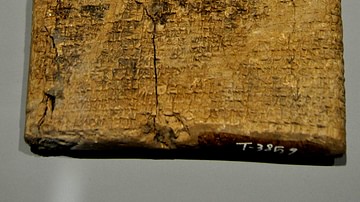
Article
Matter of Aratta
The Matter of Aratta is the modern-day title for a collection of four poems – Enmerkar and the Lord of Aratta, Enmerkar and En-suhgir-ana, Lugalbanda in the Mountain Cave, and Lugalbanda and the Anzud Bird – concerning the rivalry between...
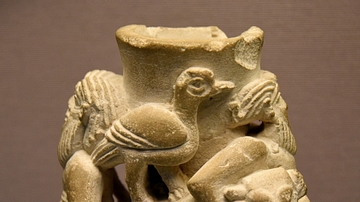
Image
Heroes Protecting Animals, Uruk
This ritual vessel shows nude heroes protecting a bird and a bull. Such heroes were popular images in ancient Mesopotamia. Late Uruk Period, 3300-3000 BCE. Probably from Uruk (Warka), Southern Mesopotamia, modern-day Iraq. (The British Museum...
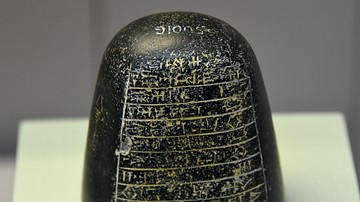
Article
Trade in Ancient Mesopotamia
Local trade in ancient Mesopotamia began in the Ubaid Period (c. 5000-4100 BCE), had developed into long-distance trade by the Uruk Period (c. 4100-2900 BCE), and was flourishing by the time of the Early Dynastic Period (2900-2334 BCE). Developments...
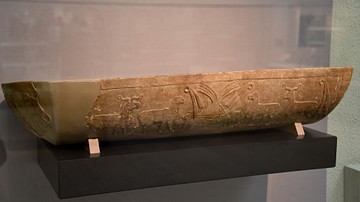
Image
The Uruk Trough
The Uruk Trough, one of the earliest examples of formal religious art from Mesopotamia. It was probably a cult object in the temple of Inanna (Ishtar); it cannot be used as a trough or basin. The carving shows sheep approaching a reed hut...
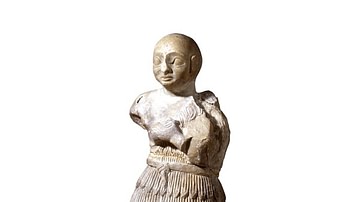
Definition
Early Dynastic Period (Mesopotamia)
The Early Dynastic Period of Mesopotamia is the modern-day archaeological term for the era in Mesopotamian history – 2900-2334 BCE – during which some of the most significant cultural advances were made including the rise of the cities, the...
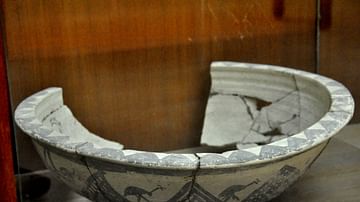
Image
Pottery Dish from Uruk Period
The outer surface of this large, partially broken, pottery dish is painted in black geometric shapes and pelicans ,while the inside (not shown) is painted with ibex figures. Uruk period, 3500-2800 BCE, Mesopotamia, Iraq. (The Sulaimaniya...
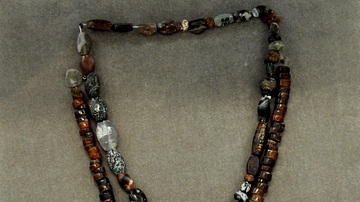
Image
Necklaces from Uruk Period
These two necklaces were made of red agate and were found inside a grave that dates back to the Uruk period, 4000-3100 BCE, Mesopotamia, Iraq. (The Sulaimaniya Museum, Iraq).
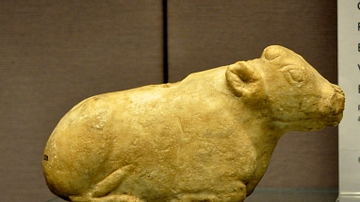
Image
Stone Calf from Late Uruk Era
There is a hole on the back of this stone calf for vertical posts or other attachments. Late Uruk period, 3300-3000 BCE, from Ur, Mesopotamia, Iraq. (The British Museum).